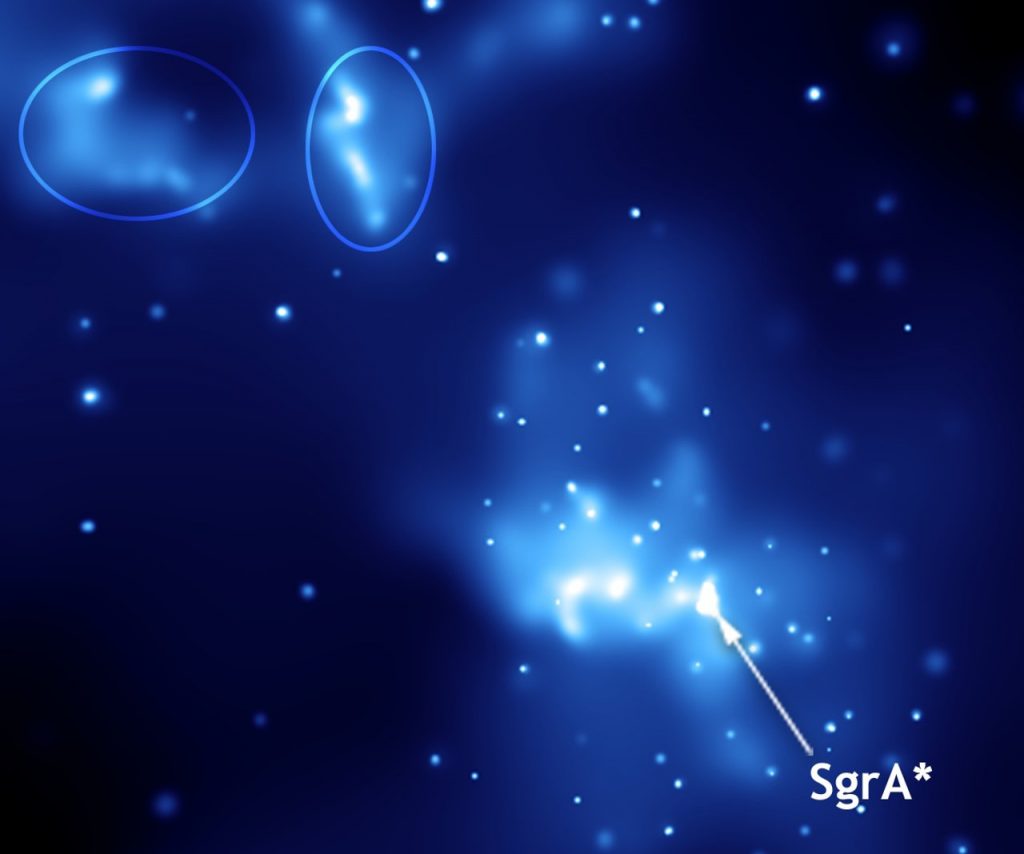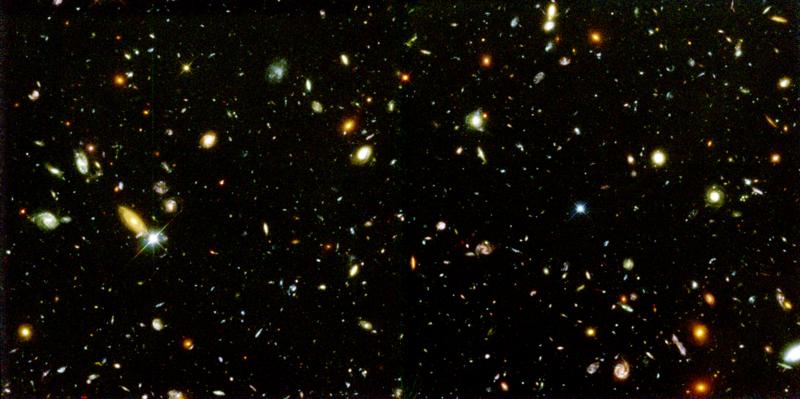The most important problem in science
The single most important question in physics – indeed, in all of science – has been with us for nearly 90 years, and in the last 20-30 yrs has become the increasing focus of attention. This question is – how do we reconcile our theory of gravity and spacetime (ie., Einstein’s “General Theory of Relativity”) with our theory of matter (ie., Quantum Mechanics)?
- Einstein’s theory explains phenomena in the cosmos, and has made mind-bending predictions like those of black holes and of the Big Bang – so outlandish that even Einstein could not believe them – and yet which we now know to be correct.
- Quantum Mechanics describes everything about matter, down to the tiniest sub-nuclear scales, and explains all the facts of chemistry and molecular biology – but it is also a very strange theory, with all sorts of bizarre consequences (wave-particle duality, entanglement, the ‘Schrodinger Cat paradox, etc).
Despite huge efforts, both theories have survived all attempts to falsify them. But – they are not consistent with each other! So science is built on a marriage of 2 incompatible partners. To solve this problem – and find a theory which marries the two – is the goal of “quantum gravity”, a name given to a theory that does not yet exist.
Because physics is the foundation of all other sciences, notably chemistry and biology, many argue this is the most important problem in all of science.
The problem has become more and more urgent in recent years, for 3 reasons
I) Black holes exist in profusion in the universe – and almost all massive galaxies contain ‘supermassive black holes’, which control the life cycle of that galaxy. Luckily our own Milky Way, even though it is rather large, contains a very small supermassive black hole – otherwise the history of the Milky Way would have been very different (and we would not exist)! The problem: to understand the nature of the “spacetime singularity” at the core of the black hole, we need to understand how to combine gravity and Quantum mechanics.

II) To understand the early universe – down to tiny fractions of a second after the Big Bang – and to understand what the Big Bang really was and why it happened, we need to “quantize gravity”. We also need to know how our present theory of elementary particles – particles which first appeared in the early universe – is changed by gravity; and we need to understand what is dark energy, and why the cosmological constant is so small.

III) We are getting ever closer to making ‘macroscopic quantum phenomena’ in physics labs on earth (examples include quantum computers, and various “quantum devices”). But if such states exist – and the standard ‘Copenhagen interpretation’ of quantum mechanics says they cannot, whereas lab experiments indicate more and more that they do – then quantum mechanics itself will face a huge crisis. Many feel that only gravity will save it from this crisis, in some yet unknown theory of quantum gravity.
WHAT will a QUANTUM GRAVITY THEORY do for us?
This question is asked by many – it basically amounts to “why should I care, and how will it change my life?” The answer to this comes in two parts:
I) Each new fundamental theory in science changes our lives in different ways. Three theories did this in the 20th century. The discovery of the structure of DNA led to the theory of the genetic code, which has since then revolutionized biology and medicine. Einstein’s theory of Relativity completely changed our understanding of space, time, and the cosmos. The most profound changes occurred with the theory of Quantum Mechanics, which has changed almost every aspect of our everyday lives in the last 100 yrs, and will continue to do so. None of these changes could possibly have been predicted. So – although we can never predict how a fundamental new theory will change our lives, just because it changes everything, we can be sure of one thing – it will change our lives!
II) Most people do not realize quite how much our lives already depend on Quantum Mechanics. It is an integral part of most of modern technology, and underpins modern chemistry and biology (including molecular biology, which underpins medical science). The influence of quantum theory will only increase as the world goes increasingly into quantum technologies. So – why will quantum gravity make any difference? This depends on what the new theory looks like. If for example, gravity causes quantum mechanics to break down for masses above the Planck mass (about 20 micrograms, the mass of a small sand grain), then our everyday world, and the future of quantum technology, will be radically affected. Other scenarios consider how time travel might emerge in a quantum gravity theory (it is already possible in Einstein’s theory, but very difficult). But the key is – we just don’t know until we have the theory! After that, the future will be in the hands of the creators. As happened with quantum mechanics, with the genetic code, with electromagnetism, and with all other key new developments in science, the winnings go to those on the scene from the beginning.
